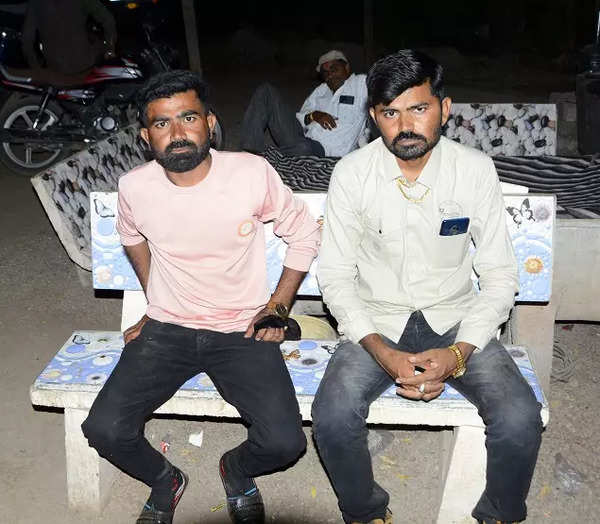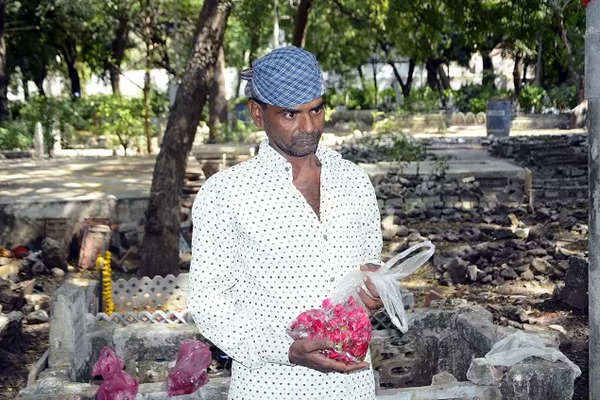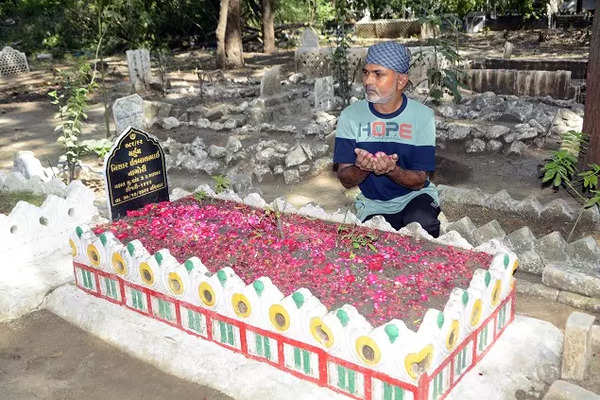[ad_1]
Their four children between the ages of 9 and 12, along with their wives and their mother, lost their lives in the bridge collapse that left more than 135 people dead in Gujarat’s Morbi town three years ago.

Pratapsinh Jadeja (left) and Padubha Jadeja.
The house that once echoed with the laughter of a happy family now lies in ruins, and the brothers have relocated to Wankaner to escape the haunting memories.
Morbi Bridge collapse: SIT report reveals several lapses
Despite a year passing, Padubha remains inconsolable. He breaks into uncontrollable sobs while discussing the tragedy, occasionally expressing his anger and desire to seek revenge. Both brothers could not return home and spent two months sleeping outside hotels, eventually needing to hire two tractors to transport their loved ones for cremation.
Padubha expresses the pain of losing his loved ones, wondering about the suffering they endured in their final moments. He emphasizes that their only wish is to see the accused brought to justice and severely punished.
Pratapsinh reveals that he still struggles to sleep, haunted by the voices of his departed children. Each morning, he awakens to the echoes of children playing, a constant reminder of what he has lost.

Dilawar at his son Sahil’s grave.
Dilawar, a grieving father who once painted walls to add color to life, has seen his world reduced to black and white. His 18-year-old son, Sahil, perished in the tragic bridge collapse. For the past year, Dilawar has visited Sahil’s grave in the morning, adorning it with roses and sitting there until evening. He cannot escape the trauma of losing his son, sharing that he has lost all interest in life and is reluctant to return to work.
Dilawar is not alone in his grief. Iqbal Nagori, an auto-rickshaw driver, now spends his entire day at the graveyard beside his son’s grave.

Iqbal Nagauri offers prayers at his son’s grave.
Iqbal lost his 18-year-old son, Nishar, in the same catastrophe. His auto-rickshaw remains parked outside the graveyard as he finds himself unable to work. He refuses to take his regular customers and is burdened with guilt, questioning why he permitted his son to go to the bridge that fateful day.
[ad_2]
Source link
